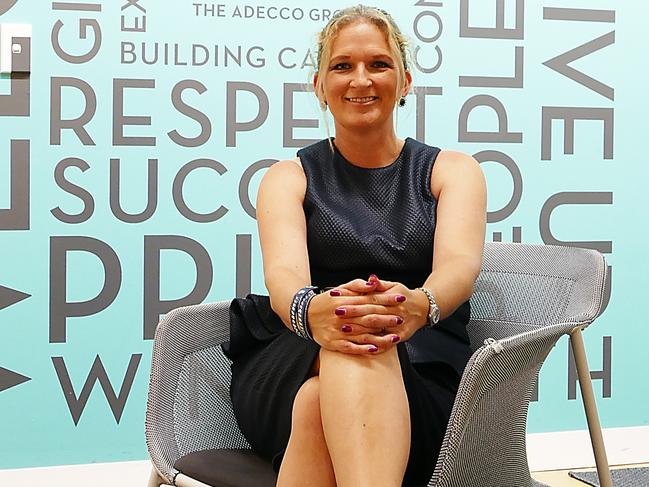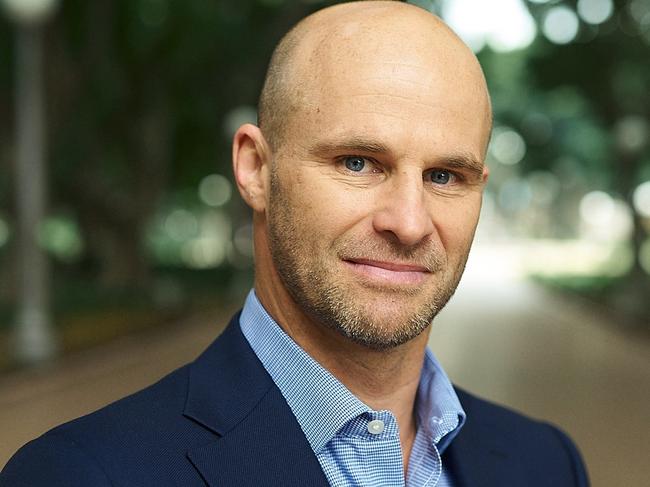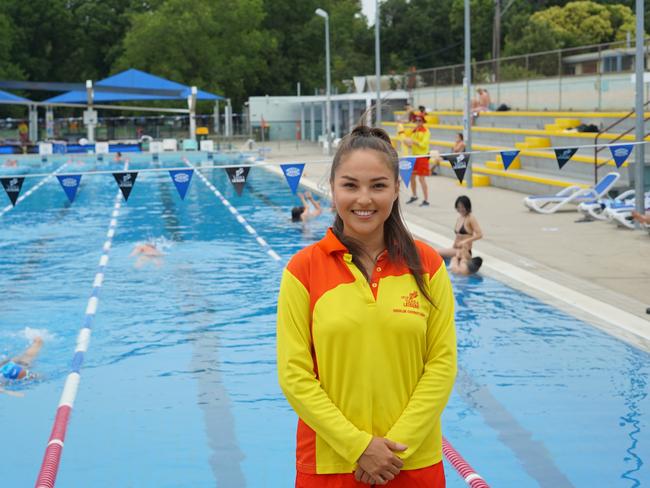8 jobs you can apply for after less than a week of training
Australian jobseekers keen to start a new career in minimal time with minimal study costs can consider one of these careers.

Careers
Don't miss out on the headlines from Careers. Followed categories will be added to My News.
A new career does not have to begin with years of study.
There are many jobs that require little or no prior education or for which workers can be trained on the job.
Recruitment company Adecco Australia managing director Kelly Van Nelson says it is critical that people take time to identify the new skills and training needed to successfully change career path.
“The first step is to examine your own current skillset and identify the transferable skills you currently possess,” she says.
“Then, start to research the new skills and training you will need as part of your new chosen career.”

Human resources organisation Lee Hecht Harrison managing director for South Asia Pacific James McIlvena recommends jobseekers make a list of jobs that might be suitable and enjoyable then researching the time and cost of training requirements.
These jobs can be started after less than a week of training:
SALES CONSULTANT
No formal qualifications are typically required, with product knowledge taught on the job.
“Workers with an intrinsic customer focus and the ability (and) willingness to learn about new products and services will succeed as sales consultants,” McIlvena says.
Van Nelson says they are usually outgoing, have high emotional intelligence and are able to demonstrate resilience and strong problem solving skills.
“(Career changers) often will have come from a position where they are managing multiple stakeholders with conflicting demands and interests,” she says.
“Previous experience might include retail or customer service, travel and tourism, call centre worker or helpdesk employee.”

BANK TELLER
There are no required qualifications to work as a bank teller, however employers may look favourably on a Certificate IV in Financial Services or Bachelor of Business.
Van Nelson says because the role is customer facing, workers need to be good communicators and able to work in fast-paced environments.
“Previous experience of a successful bank teller might include retail, administration, or customer service roles,” she says.
“It’s important that they have good face-to-face and interpersonal skills.”
McIlvena says they also need fantastic attention to detail and financial literacy.
FORKLIFT DRIVER
Workers require a Licence to Operate A Forklift Truck, which can be gained after a three-day course.
McIlvena says apart from the ticket, drivers require flexibility to work varied shift times.
Van Nelson says they also must have “an innate commitment to safety”.
“Forklift drivers are often mechanically minded people who are able to follow instructions and problem solve,” she says.
“This career path would suit people who have come from fast-paced environments where goals have been tangible, measured, and consistent – for example, people who have worked in manufacturing, retail, driving or couriers or labourers.”

CALL CENTRE OPERATOR
No formal qualifications are needed.
“This is a nice avenue for candidates transitioning from retail, security, and hospitality careers due to the high level of people engagement in these types of industries,” Van Nelson says.
“Hiring managers for call centre positions are often looking for high emotional intelligence and calm mannered individuals who have a friendly communication style.”
PICKER AND PACKER
All training is provided on the job, however employers may look favourably on jobseekers qualified to operate a forklift.
“The logistics sector is still very strong, even amidst COVID-19, and experience isn’t essential for many roles,” Van Nelson says.
“Candidates do need to be physically fit, methodical, process driven and be flexible with work hours.
“This is an excellent path for school leavers and graduates or as an employment entry role as there are usually lots of opportunities to progress into supervisory and management roles in the future.”
NANNY
Typically, a jobseeker will require a Working With Children Check, a National Police Check, a First Aid Certificate and CPR certification.
Each of these can be gained in a day.
No formal qualifications are required unless a jobseeker wishes to join the Australian Nanny Association, which requires them to at least be working towards a Certificate III in Early Childhood Education and Care or Bachelor of Education.
McIlvena says references of previous work are often specified as a requirement by employers.
BUS DRIVER
Jobseekers require a Medium Rigid Licence or Heavy Rigid Truck Licence to drive a bus, depending on the vehicle.
Courses can be done in one to three days, as long as the driver has held an open car license for at least one year for MR or two years for HR.
Once hired, a bus driver will typically begin with a few weeks of on-the-job training.

POOL LIFEGUARD / SWIM TEACHER
An entry-level lifeguard course can be completed through Royal Life Saving in three days while qualified swim teachers require a three-day course plus 20 hours of on-the-job training.
Royal Life Saving Society Australia chief executive Justin Scarr says many pools are struggling to find qualified employees.
“This is a significant issue for an industry which really struggled to survive the pandemic lockdowns,” he says.
“The good news is that for people who are currently unemployed, or looking at a change in career, there are jobs available right now across Australia.
“The aquatic industry is great for people who need some flexibility – parents returning to the workforce, or people looking for hours that fit around their caring responsibilities.”
Scarr says people can enjoy long-term careers in the aquatic industry.
“There are good-paying, entry-level roles such as swimming and water safety teacher, pool lifeguard, duty manager and community programs officers,” he says.
“There are technical roles, including aquatic technical operator, which involves managing an aquatic facility’s pools, plant equipment and water quality.
“People often progress through the industry into management roles, developing highly sought-after professional skills along the way.”
Yarra Leisure lifeguard and duty manager Mai Davies, 23, recommends lifeguarding to anyone with a keen interest in safety, team work and taking on responsibilities.
“Lifeguarding may seem like walking in circles but it is filled with many problem solving situations and opportunities to understand how you manage stress for yourself and others,” she says.
“I credit so much of my personal and professional growth to lifeguarding, which I wouldn’t be able to experience anywhere else as a casual job.”
Davies recently graduated university so will begin working as a Japanese and Physical Education teacher soon but she plans to continue with the occasional weekend shift at the pool.
Originally published as 8 jobs you can apply for after less than a week of training




